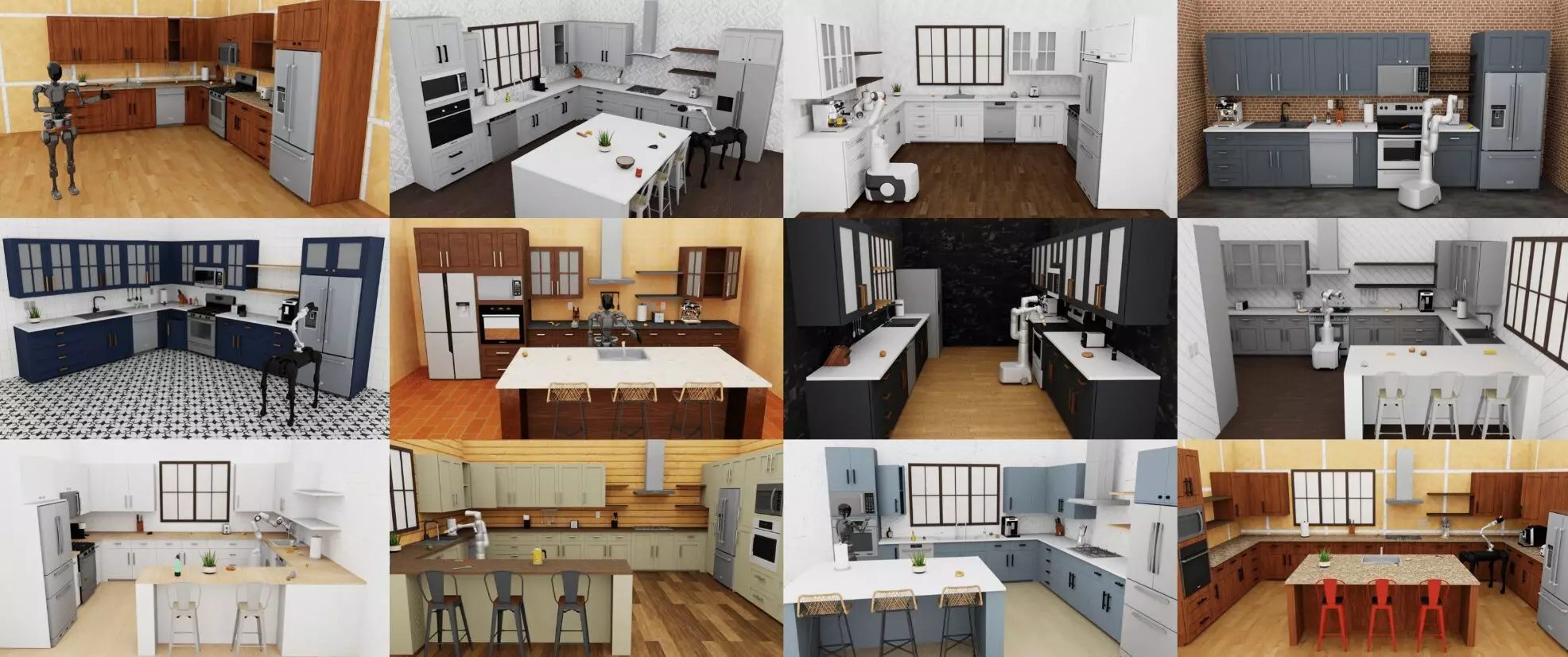The realm of artificial intelligence (AI) tools, such as natural language processing (NLP) models and computer vision algorithms, has seen significant advancements in recent years. These improvements are largely attributed to the exponential growth of training datasets, comprising extensive collections of images and texts sourced from various online platforms. However, when it comes to datasets for training robotics algorithms, the scenario is quite different. Acquiring training data for robot control and planning algorithms is a more challenging task, leading researchers to explore the development of larger datasets and platforms to bolster computational models for robotics applications.
Researchers at the University of Texas at Austin and NVIDIA Research have introduced a novel simulation platform known as RoboCasa. This platform aims to train generalist robots to perform diverse tasks in everyday settings. The team, led by Yuke Zhu, has leveraged the advancements in AI to create foundation models for versatile robots capable of executing a wide range of tasks. RoboCasa serves as a robust simulation framework that provides high-quality simulation data essential for training these robotics foundation models.
The primary objective behind the creation of RoboCasa was to establish an open-source simulation platform that facilitates the training of robotics algorithms. Building on their previous work with RoboSuite, the team utilized generative AI tools to enhance the realism and diversity of simulated environments within RoboCasa. Featuring thousands of 3D scenes with a variety of objects and furniture items, the platform also includes over 100 tasks for training robotics algorithms. Additionally, RoboCasa offers support for various robot hardware platforms, along with large datasets comprising over 100k trajectories for model training.
RoboCasa’s highly realistic simulations, enriched by generative AI tools, have proven to be instrumental in training robotics algorithms through synthetic data generation. The platform showcases a notable scaling trend where larger training datasets lead to improved model performance. Furthermore, the combination of simulation data with real-world data has demonstrated enhanced performance in real-world tasks. These findings underscore the effectiveness of simulation data in training AI models for robotics applications and highlight the potential for broader experimentation with RoboCasa in the robotics community.
Moving forward, the creators of RoboCasa envision incorporating advanced generative AI methods to further expand the platform’s simulations, capturing the complexity of human-centric environments across various settings. As an open-source platform accessible on GitHub, RoboCasa is poised to empower robotics researchers and practitioners to leverage synthetic training data for training imitation learning algorithms. The ongoing efforts to enhance and extend RoboCasa underscore a commitment to fostering innovation and collaboration within the robotics community, paving the way for future advancements in robotics training and development.


Leave a Reply